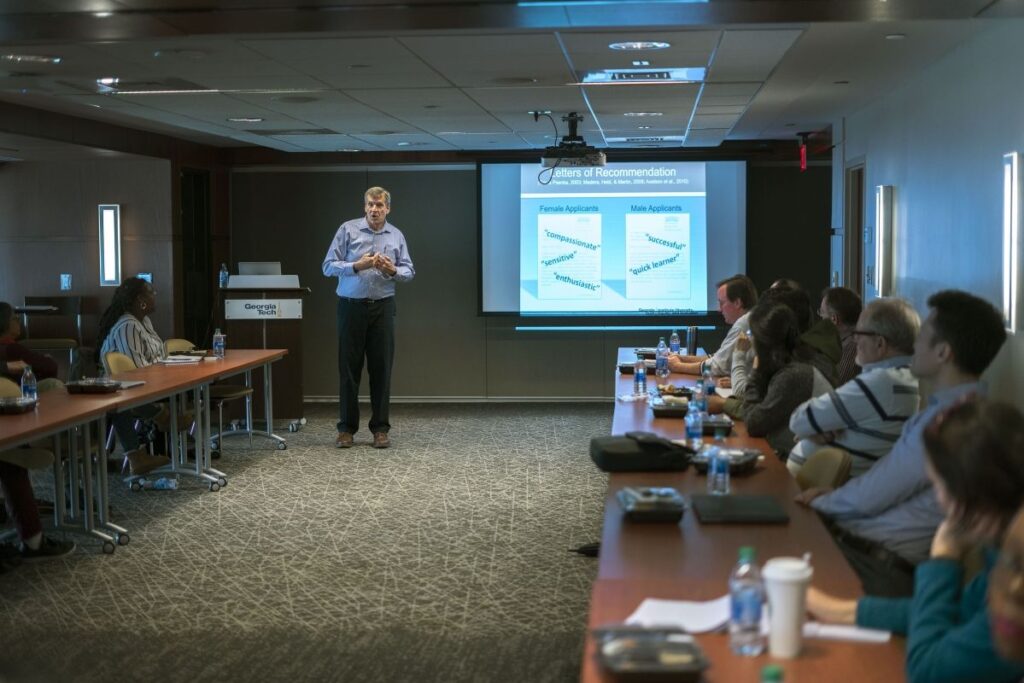
As an institution, Tech prides itself on the diversity and inclusivity of its personnel and student body. To maintain this reputation, the Institute is making further efforts to educate its staff and student body against implicit biases to support and advocate for an increasingly diverse campus community.
This year, the Institute Diversity, Equity, and Inclusion (IDEI) program at Tech is expanding their workshops and education systems for faculty. With the help of the Tech ADVANCE program, IDEI will enhance their current learning objectives concerning implicit biases in the workplace and in learning environments.
The primary goal of these workshops is to educate Tech’s staff and students on the effects of implicit bias and microaggressions on various situations surrounding their work. These situations span from the promotion and tenure processes to writing letters of recommendation and interpersonal dialogue.
There are three different workshops being provided by the IDEI. The first of which, entitled Implicit Bias and Search Committees, is directed towards the staff who work on promotion, search and hiring committees.
This curriculum predominantly focuses on bringing awareness to the effects of implicit bias, how to dilute these effects and how the effects may impact hiring.
The second, entitled Implicit Bias and Workplace Dynamics, focuses on informing a broader audience as to how implicit biases can affect the operations of the workplace. This can be addressed through various factors such as the interpersonal relations of peers, writing of performance reviews and the strengthening of a healthy working environment.
The third, entitled Addressing Microaggressions, is open to everyone in the Tech community, including students. This workshop educates people about microaggressions and how to manage them by bringing attention to their impact.
The director of Diversity and Inclusion Education and Training with IDEI, Kay Martinez, will be spearheading the operation of the new and improved workshops. Through the improvement of the workshops, Martinez hopes that “people leave inspired to change their behaviors and work with others across campus to reexamine processes and innovate solutions.”
Martinez and their team aspire to continue the trend of progress that has been occurring in higher education, as historically, higher education in the United States has not been inclusive or equitable to members of oppressed demographics.
The Institute has been known to combat this history, as Tech is consistently ranked among the top universities in the U.S. for graduation of underrepresented minority students in engineering, physical sciences and architecture and planning according to “Diverse” magazine’s “Producers of Minority Degrees” ranking.
Although Tech’s focus on equity and reducing biases is not a new trend, IDEI believes improvement can still be made. Tech students share the same sentiment.
“I think Georgia Tech does an amazing job of making minorities feel included. [However,] Tech needs to continue their culture of inclusivity by requiring these training sessions for staff,” said Mateo Villalobos, fourth-year CHBE.
“It is crucial to not become comfortable with the progress the school has made, and continue to grow the inclusive culture.”
One of the goals of these curriculum enhancements is to diversify the workforce at the Institute.
By reducing, or hopefully eliminating, the biases held by employers in the recruitment process, Tech will then be able to evaluate their potential employees on their merit and competency rather than their gender or race.
Increasing inclusivity and diversity is an area of focus in the world of academia.
Not only does it provide a broader perspective for people to learn from, but a diverse workforce also leads to a more efficient workplace and learning space.
“I think inclusivity and equality are vital [in academic and professional settings] in order to garner different perspectives that will allow a community to foster an environment where people can better themselves and their work,” said Phoenix Zhang, a first-year IE.
These programs, which are largely aimed towards Tech faculty and staff, will help cultivate a stronger and more inclusive community for everyone on-campus or involved with the Institute. To sign up for an upcoming workshop, visit education.diversity.gatech.edu/trainings.
